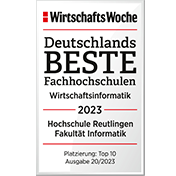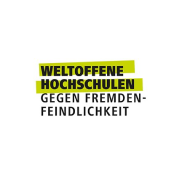

Digital Business
The Digital Business research group and the associated Research Lab for Digital Business deal with issues relating to digital transformation. For this, there are four key areas of work.
Research focus
- Digital Business Models, Customer Experience, Technology Marketing
This area of work relates to digital business models, the design of customer interactions and the creation of a convincing digital customer experience. Relevant issues include the conceptualization and measurement of the customer journey, the design of digital customer contact points and the use of social media and word-of-mouth in marketing and sales. In addition, the application of digital technologies at the customer interface is being investigated.
- Machine Learning and Digital Twins in Customer Systems
Within the Stuttgart Region AI Lab (see www.ki-lab-region-stuttgart.de), the research group deals with the design and application of machine learning models in customer systems. This includes the design and optimization of digital twins for services in the context of customer interactions.
- Agile Systems
This area includes research on agile organizational and governance models and the use of software to promote agility in companies. This focuses on issues such as the introduction of corresponding systems, the creation of system acceptance among platform users, the development of suitable governance models for operation, and the further development of organizational structures towards agile companies. In addition, the research explores how companies can make their innovation processes more open and agile. This includes, among other things, the application of concepts from the startup context within established business environments.
- Smart City, Data Governance, Data Platforms
The research group is also involved in the Smart City Living Lab of the Böblingen region. This includes research projects on the design of urban data platforms and the application of data-based services in areas of life such as climate, mobility and public administration.
Alexander Rossmann has contributed to over 70 peer-reviewed publications in various journals and conferences (see Google Scholar profile). A list of publications by all members of the research group is available via the university bibliography of Reutlingen University.
In teaching, the research group focuses on integrating relevant content from the field of Digital Business into Bachelor's and Master's programs at Reutlingen University. A particular emphasis is placed on the Master's program in Digital Business Management at the Herman Hollerith Zentrum, which specifically addresses digital transformation.
The research group cooperates in the field of research with a large number of research institutions and networks, in particular:
Babeș-Bolyai University, Cluj
IDC Herzliya, Tel Aviv
Indian Institute of Management, Bangalore
MIT Center for Digital Business
Universität St.Gallen
Universität der Bundeswehr, München
University of the West of Scotland (UWS)
Glasgow Caledonian University
University of Queensland
The Research Lab for Digital Business has a wide range of partners in the industry. In the last two years, cooperation with the following companies has been of particular importance:
BSH Bosch Siemens Hausgeräte
Lapp Group
MHP – A Porsche Company
Robert Bosch GmbH
Siemens AG
Telekom Deutschland GmbH
Virtual Identity AG
Volkswagen AG












